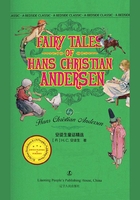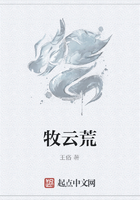It would be difficult to explain exactly what could have originated the idea of that senseless dinner in Katerina Ivanovna's disordered brain. Nearly ten of the twenty roubles, given by Raskolnikov for Marmeladov's funeral, were wasted upon it. Possibly Katerina Ivanovna felt obliged to honour the memory of the deceased "suitably," that all the lodgers, and still more Amalia Ivanovna, might know "that he was in no way their inferior, and perhaps very much their superior," and that no one had the right "to turn up his nose at him." Perhaps the chief element was that peculiar "poor man's pride," which compels many poor people to spend their last savings on some traditional social ceremony, simply in order to do "like other people," and not to "be looked down upon." It is very probable, too, that Katerina Ivanovna longed on this occasion, at the moment when she seemed to be abandoned by everyone, to show those "wretched contemptible lodgers" that she knew "how to do things, how to entertain" and that she had been brought up "in a genteel, she might almost say aristocratic colonel's family" and had not been meant for sweeping floors and washing the children's rags at night. Even the poorest and most broken-spirited people are sometimes liable to these paroxysms of pride and vanity which take the form of an irresistible nervous craving. And Katerina Ivanovna was not broken-spirited; she might have been killed by circumstance, but her spirit could not have been broken, that is, she could not have been intimidated, her will could not be crushed. Moreover Sonia had said with good reason that her mind was unhinged. She could not be said to be insane, but for a year past she had been so harassed that her mind might well be overstrained. The later stages of consumption are apt, doctors tell us, to affect the intellect.
There was no great variety of wines, nor was there Madeira; but wine there was. There was vodka, rum and Lisbon wine, all of the poorest quality but in sufficient quantity. Besides the traditional rice and honey, there were three or four dishes, one of which consisted of pancakes, all prepared in Amalia Ivanovna's kitchen. Two samovars were boiling, that tea and punch might be offered after dinner. Katerina Ivanovna had herself seen to purchasing the provisions, with the help of one of the lodgers, an unfortunate little Pole who had somehow been stranded at Madame Lippevechsel's. He promptly put himself at Katerina Ivanovna's disposal and had been all that morning and all the day before running about as fast as his legs could carry him, and very anxious that everyone should be aware of it. For every trifle he ran to Katerina Ivanovna, even hunting her out at the bazaar, at every instant called her "/Pani/." She was heartily sick of him before the end, though she had declared at first that she could not have got on without this "serviceable and magnanimous man." It was one of Katerina Ivanovna's characteristics to paint everyone she met in the most glowing colours. Her praises were so exaggerated as sometimes to be embarrassing; she would invent various circumstances to the credit of her new acquaintance and quite genuinely believe in their reality. Then all of a sudden she would be disillusioned and would rudely and contemptuously repulse the person she had only a few hours before been literally adoring. She was naturally of a gay, lively and peace-loving disposition, but from continual failures and misfortunes she had come to desire so /keenly/ that all should live in peace and joy and should not /dare/ to break the peace, that the slightest jar, the smallest disaster reduced her almost to frenzy, and she would pass in an instant from the brightest hopes and fancies to cursing her fate and raving, and knocking her head against the wall.
Amalia Ivanovna, too, suddenly acquired extraordinary importance in Katerina Ivanovna's eyes and was treated by her with extraordinary respect, probably only because Amalia Ivanovna had thrown herself heart and soul into the preparations. She had undertaken to lay the table, to provide the linen, crockery, etc., and to cook the dishes in her kitchen, and Katerina Ivanovna had left it all in her hands and gone herself to the cemetery. Everything had been well done. Even the table-cloth was nearly clean; the crockery, knives, forks and glasses were, of course, of all shapes and patterns, lent by different lodgers, but the table was properly laid at the time fixed, and Amalia Ivanovna, feeling she had done her work well, had put on a black silk dress and a cap with new mourning ribbons and met the returning party with some pride. This pride, though justifiable, displeased Katerina Ivanovna for some reason: "as though the table could not have been laid except by Amalia Ivanovna!" She disliked the cap with new ribbons, too. "Could she be stuck up, the stupid German, because she was mistress of the house, and had consented as a favour to help her poor lodgers! As a favour! Fancy that! Katerina Ivanovna's father who had been a colonel and almost a governor had sometimes had the table set for forty persons, and then anyone like Amalia Ivanovna, or rather Ludwigovna, would not have been allowed into the kitchen."
Katerina Ivanovna, however, put off expressing her feelings for the time and contented herself with treating her coldly, though she decided inwardly that she would certainly have to put Amalia Ivanovna down and set her in her proper place, for goodness only knew what she was fancying herself. Katerina Ivanovna was irritated too by the fact that hardly any of the lodgers invited had come to the funeral, except the Pole who had just managed to run into the cemetery, while to the memorial dinner the poorest and most insignificant of them had turned up, the wretched creatures, many of them not quite sober. The older and more respectable of them all, as if by common consent, stayed away. Pyotr Petrovitch Luzhin, for instance, who might be said to be the most respectable of all the lodgers, did not appear, though Katerina Ivanovna had the evening before told all the world, that is Amalia Ivanovna, Polenka, Sonia and the Pole, that he was the most generous, noble-hearted man with a large property and vast connections, who had been a friend of her first husband's, and a guest in her father's house, and that he had promised to use all his influence to secure her a considerable pension. It must be noted that when Katerina Ivanovna exalted anyone's connections and fortune, it was without any ulterior motive, quite disinterestedly, for the mere pleasure of adding to the consequence of the person praised. Probably "taking his cue" from Luzhin, "that contemptible wretch Lebeziatnikov had not turned up either. What did he fancy himself? He was only asked out of kindness and because he was sharing the same room with Pyotr Petrovitch and was a friend of his, so that it would have been awkward not to invite him."
Among those who failed to appear were "the genteel lady and her old- maidish daughter," who had only been lodgers in the house for the last fortnight, but had several times complained of the noise and uproar in Katerina Ivanovna's room, especially when Marmeladov had come back drunk. Katerina Ivanovna heard this from Amalia Ivanovna who, quarrelling with Katerina Ivanovna, and threatening to turn the whole family out of doors, had shouted at her that they "were not worth the foot" of the honourable lodgers whom they were disturbing. Katerina Ivanovna determined now to invite this lady and her daughter, "whose foot she was not worth," and who had turned away haughtily when she casually met them, so that they might know that "she was more noble in her thoughts and feelings and did not harbour malice," and might see that she was not accustomed to her way of living. She had proposed to make this clear to them at dinner with allusions to her late father's governorship, and also at the same time to hint that it was exceedingly stupid of them to turn away on meeting her. The fat colonel-major (he was really a discharged officer of low rank) was also absent, but it appeared that he had been "not himself" for the last two days. The party consisted of the Pole, a wretched looking clerk with a spotty face and a greasy coat, who had not a word to say for himself, and smelt abominably, a deaf and almost blind old man who had once been in the post office and who had been from immemorial ages maintained by someone at Amalia Ivanovna's.
A retired clerk of the commissariat department came, too; he was drunk, had a loud and most unseemly laugh and only fancy--was without a waistcoat! One of the visitors sat straight down to the table without even greeting Katerina Ivanovna. Finally one person having no suit appeared in his dressing-gown, but this was too much, and the efforts of Amalia Ivanovna and the Pole succeeded in removing him. The Pole brought with him, however, two other Poles who did not live at Amalia Ivanovna's and whom no one had seen here before. All this irritated Katerina Ivanovna intensely. "For whom had they made all these preparations then?" To make room for the visitors the children had not even been laid for at the table; but the two little ones were sitting on a bench in the furthest corner with their dinner laid on a box, while Polenka as a big girl had to look after them, feed them, and keep their noses wiped like well-bred children's.
Katerina Ivanovna, in fact, could hardly help meeting her guests with increased dignity, and even haughtiness. She stared at some of them with special severity, and loftily invited them to take their seats. Rushing to the conclusion that Amalia Ivanovna must be responsible for those who were absent, she began treating her with extreme nonchalance, which the latter promptly observed and resented. Such a beginning was no good omen for the end. All were seated at last.
Raskolnikov came in almost at the moment of their return from the cemetery. Katerina Ivanovna was greatly delighted to see him, in the first place, because he was the one "educated visitor, and, as everyone knew, was in two years to take a professorship in the university," and secondly because he immediately and respectfully apologised for having been unable to be at the funeral. She positively pounced upon him, and made him sit on her left hand (Amalia Ivanovna was on her right). In spite of her continual anxiety that the dishes should be passed round correctly and that everyone should taste them, in spite of the agonising cough which interrupted her every minute and seemed to have grown worse during the last few days, she hastened to pour out in a half whisper to Raskolnikov all her suppressed feelings and her just indignation at the failure of the dinner, interspersing her remarks with lively and uncontrollable laughter at the expense of her visitors and especially of her landlady.
"It's all that cuckoo's fault! You know whom I mean? Her, her!" Katerina Ivanovna nodded towards the landlady. "Look at her, she's making round eyes, she feels that we are talking about her and can't understand. Pfoo, the owl! Ha-ha! (Cough-cough-cough.) And what does she put on that cap for? (Cough-cough-cough.) Have you noticed that she wants everyone to consider that she is patronising me and doing me an honour by being here? I asked her like a sensible woman to invite people, especially those who knew my late husband, and look at the set of fools she has brought! The sweeps! Look at that one with the spotty face. And those wretched Poles, ha-ha-ha! (Cough-cough-cough.) Not one of them has ever poked his nose in here, I've never set eyes on them. What have they come here for, I ask you? There they sit in a row. Hey, /pan/!" she cried suddenly to one of them, "have you tasted the pancakes? Take some more! Have some beer! Won't you have some vodka? Look, he's jumped up and is making his bows, they must be quite starved, poor things. Never mind, let them eat! They don't make a noise, anyway, though I'm really afraid for our landlady's silver spoons…Amalia Ivanovna!" she addressed her suddenly, almost aloud, "if your spoons should happen to be stolen, I won't be responsible, I warn you! Ha-ha-ha!" She laughed turning to Raskolnikov, and again nodding towards the landlady, in high glee at her sally. "She didn't understand, she didn't understand again! Look how she sits with her mouth open! An owl, a real owl! An owl in new ribbons, ha-ha-ha!"
Here her laugh turned again to an insufferable fit of coughing that lasted five minutes. Drops of perspiration stood out on her forehead and her handkerchief was stained with blood. She showed Raskolnikov the blood in silence, and as soon as she could get her breath began whispering to him again with extreme animation and a hectic flush on her cheeks.
"Do you know, I gave her the most delicate instructions, so to speak, for inviting that lady and her daughter, you understand of whom I am speaking? It needed the utmost delicacy, the greatest nicety, but she has managed things so that that fool, that conceited baggage, that provincial nonentity, simply because she is the widow of a major, and has come to try and get a pension and to fray out her skirts in the government offices, because at fifty she paints her face (everybody knows it)…a creature like that did not think fit to come, and has not even answered the invitation, which the most ordinary good manners required! I can't understand why Pyotr Petrovitch has not come? But where's Sonia? Where has she gone? Ah, there she is at last! what is it, Sonia, where have you been? It's odd that even at your father's funeral you should be so unpunctual. Rodion Romanovitch, make room for her beside you. That's your place, Sonia…take what you like. Have some of the cold entree with jelly, that's the best. They'll bring the pancakes directly. Have they given the children some? Polenka, have you got everything? (Cough-cough-cough.) That's all right. Be a good girl, Lida, and, Kolya, don't fidget with your feet; sit like a little gentleman. What are you saying, Sonia?"
Sonia hastened to give her Pyotr Petrovitch's apologies, trying to speak loud enough for everyone to hear and carefully choosing the most respectful phrases which she attributed to Pyotr Petrovitch. She added that Pyotr Petrovitch had particularly told her to say that, as soon as he possibly could, he would come immediately to discuss /business/ alone with her and to consider what could be done for her, etc., etc.
Sonia knew that this would comfort Katerina Ivanovna, would flatter her and gratify her pride. She sat down beside Raskolnikov; she made him a hurried bow, glancing curiously at him. But for the rest of the time she seemed to avoid looking at him or speaking to him. She seemed absent-minded, though she kept looking at Katerina Ivanovna, trying to please her. Neither she nor Katerina Ivanovna had been able to get mourning; Sonia was wearing dark brown, and Katerina Ivanovna had on her only dress, a dark striped cotton one.
The message from Pyotr Petrovitch was very successful. Listening to Sonia with dignity, Katerina Ivanovna inquired with equal dignity how Pyotr Petrovitch was, then at once whispered almost aloud to Raskolnikov that it certainly would have been strange for a man of Pyotr Petrovitch's position and standing to find himself in such "extraordinary company," in spite of his devotion to her family and his old friendship with her father.
"That's why I am so grateful to you, Rodion Romanovitch, that you have not disdained my hospitality, even in such surroundings," she added almost aloud. "But I am sure that it was only your special affection for my poor husband that has made you keep your promise."
Then once more with pride and dignity she scanned her visitors, and suddenly inquired aloud across the table of the deaf man: "Wouldn't he have some more meat, and had he been given some wine?" The old man made no answer and for a long while could not understand what he was asked, though his neighbours amused themselves by poking and shaking him. He simply gazed about him with his mouth open, which only increased the general mirth.
"What an imbecile! Look, look! Why was he brought? But as to Pyotr Petrovitch, I always had confidence in him," Katerina Ivanovna continued, "and, of course, he is not like…" with an extremely stern face she addressed Amalia Ivanovna so sharply and loudly that the latter was quite disconcerted, "not like your dressed up draggletails whom my father would not have taken as cooks into his kitchen, and my late husband would have done them honour if he had invited them in the goodness of his heart."
"Yes, he was fond of drink, he was fond of it, he did drink!" cried the commissariat clerk, gulping down his twelfth glass of vodka.
"My late husband certainly had that weakness, and everyone knows it," Katerina Ivanovna attacked him at once, "but he was a kind and honourable man, who loved and respected his family. The worst of it was his good nature made him trust all sorts of disreputable people, and he drank with fellows who were not worth the sole of his shoe. Would you believe it, Rodion Romanovitch, they found a gingerbread cock in his pocket; he was dead drunk, but he did not forget the children!"
"A cock? Did you say a cock?" shouted the commissariat clerk.
Katerina Ivanovna did not vouchsafe a reply. She sighed, lost in thought.
"No doubt you think, like everyone, that I was too severe with him," she went on, addressing Raskolnikov. "But that's not so! He respected me, he respected me very much! He was a kind-hearted man! And how sorry I was for him sometimes! He would sit in a corner and look at me, I used to feel so sorry for him, I used to want to be kind to him and then would think to myself: 'Be kind to him and he will drink again,' it was only by severity that you could keep him within bounds."
"Yes, he used to get his hair pulled pretty often," roared the commissariat clerk again, swallowing another glass of vodka.
"Some fools would be the better for a good drubbing, as well as having their hair pulled. I am not talking of my late husband now!" Katerina Ivanovna snapped at him.
The flush on her cheeks grew more and more marked, her chest heaved. In another minute she would have been ready to make a scene. Many of the visitors were sniggering, evidently delighted. They began poking the commissariat clerk and whispering something to him. They were evidently trying to egg him on.
"Allow me to ask what are you alluding to," began the clerk, "that is to say, whose…about whom…did you say just now…But I don't care! That's nonsense! Widow! I forgive you……Pass!"
And he took another drink of vodka.
Raskolnikov sat in silence, listening with disgust. He only ate from politeness, just tasting the food that Katerina Ivanovna was continually putting on his plate, to avoid hurting her feelings. He watched Sonia intently. But Sonia became more and more anxious and distressed; she, too, foresaw that the dinner would not end peaceably, and saw with terror Katerina Ivanovna's growing irritation. She knew that she, Sonia, was the chief reason for the 'genteel' ladies' contemptuous treatment of Katerina Ivanovna's invitation. She had heard from Amalia Ivanovna that the mother was positively offended at the invitation and had asked the question: "How could she let her daughter sit down beside /that young person/?" Sonia had a feeling that Katerina Ivanovna had already heard this and an insult to Sonia meant more to Katerina Ivanovna than an insult to herself, her children, or her father, Sonia knew that Katerina Ivanovna would not be satisfied now, "till she had shown those draggletails that they were both…" To make matters worse someone passed Sonia, from the other end of the table, a plate with two hearts pierced with an arrow, cut out of black bread. Katerina Ivanovna flushed crimson and at once said aloud across the table that the man who sent it was "a drunken ass!"
Amalia Ivanovna was foreseeing something amiss, and at the same time deeply wounded by Katerina Ivanovna's haughtiness, and to restore the good-humour of the company and raise herself in their esteem she began, apropos of nothing, telling a story about an acquaintance of hers "Karl from the chemist's," who was driving one night in a cab, and that "the cabman wanted him to kill, and Karl very much begged him not to kill, and wept and clasped hands, and frightened and from fear pierced his heart." Though Katerina Ivanovna smiled, she observed at once that Amalia Ivanovna ought not to tell anecdotes in Russian; the latter was still more offended, and she retorted that her "/Vater aus Berlin/ was a very important man, and always went with his hands in pockets." Katerina Ivanovna could not restrain herself and laughed so much that Amalia Ivanovna lost patience and could scarcely control herself.
"Listen to the owl!" Katerina Ivanovna whispered at once, her good- humour almost restored, "she meant to say he kept his hands in his pockets, but she said he put his hands in people's pockets. (Cough- cough.) And have you noticed, Rodion Romanovitch, that all these Petersburg foreigners, the Germans especially, are all stupider than we! Can you fancy anyone of us telling how 'Karl from the chemist's' 'pierced his heart from fear' and that the idiot, instead of punishing the cabman, 'clasped his hands and wept, and much begged.' Ah, the fool! And you know she fancies it's very touching and does not suspect how stupid she is! To my thinking that drunken commissariat clerk is a great deal cleverer, anyway one can see that he has addled his brains with drink, but you know, these foreigners are always so well behaved and serious……Look how she sits glaring! She is angry, ha-ha! (Cough-cough-cough.)"
Regaining her good-humour, Katerina Ivanovna began at once telling Raskolnikov that when she had obtained her pension, she intended to open a school for the daughters of gentlemen in her native town T----. This was the first time she had spoken to him of the project, and she launched out into the most alluring details. It suddenly appeared that Katerina Ivanovna had in her hands the very certificate of honour of which Marmeladov had spoken to Raskolnikov in the tavern, when he told him that Katerina Ivanovna, his wife, had danced the shawl dance before the governor and other great personages on leaving school. This certificate of honour was obviously intended now to prove Katerina Ivanovna's right to open a boarding-school; but she had armed herself with it chiefly with the object of overwhelming "those two stuck-up draggletails" if they came to the dinner, and proving incontestably that Katerina Ivanovna was of the most noble, "she might even say aristocratic family, a colonel's daughter and was far superior to certain adventuresses who have been so much to the fore of late." The certificate of honour immediately passed into the hands of the drunken guests, and Katerina Ivanovna did not try to retain it, for it actually contained the statement /en toutes lettres/, that her father was of the rank of a major, and also a companion of an order, so that she really was almost the daughter of a colonel.
Warming up, Katerina Ivanovna proceeded to enlarge on the peaceful and happy life they would lead in T----, on the gymnasium teachers whom she would engage to give lessons in her boarding-school, one a most respectable old Frenchman, one Mangot, who had taught Katerina Ivanovna herself in old days and was still living in T----, and would no doubt teach in her school on moderate terms. Next she spoke of Sonia who would go with her to T---- and help her in all her plans. At this someone at the further end of the table gave a sudden guffaw.
Though Katerina Ivanovna tried to appear to be disdainfully unaware of it, she raised her voice and began at once speaking with conviction of Sonia's undoubted ability to assist her, of "her gentleness, patience, devotion, generosity and good education," tapping Sonia on the cheek and kissing her warmly twice. Sonia flushed crimson, and Katerina Ivanovna suddenly burst into tears, immediately observing that she was "nervous and silly, that she was too much upset, that it was time to finish, and as the dinner was over, it was time to hand round the tea."
At that moment, Amalia Ivanovna, deeply aggrieved at taking no part in the conversation, and not being listened to, made one last effort, and with secret misgivings ventured on an exceedingly deep and weighty observation, that "in the future boarding-school she would have to pay particular attention to /die Wasche/, and that there certainly must be a good /dame/ to look after the linen, and secondly that the young ladies must not novels at night read."
Katerina Ivanovna, who certainly was upset and very tired, as well as heartily sick of the dinner, at once cut short Amalia Ivanovna, saying "she knew nothing about it and was talking nonsense, that it was the business of the laundry maid, and not of the directress of a high- class boarding-school to look after /die Wasche/, and as for novel- reading, that was simply rudeness, and she begged her to be silent." Amalia Ivanovna fired up and getting angry observed that she only "meant her good," and that "she had meant her very good," and that "it was long since she had paid her /gold/ for the lodgings."
Katerina Ivanovna at once "set her down," saying that it was a lie to say she wished her good, because only yesterday when her dead husband was lying on the table, she had worried her about the lodgings. To this Amalia Ivanovna very appropriately observed that she had invited those ladies, but "those ladies had not come, because those ladies /are/ ladies and cannot come to a lady who is not a lady." Katerina Ivanovna at once pointed out to her, that as she was a slut she could not judge what made one really a lady. Amalia Ivanovna at once declared that her "/Vater aus Berlin/ was a very, very important man, and both hands in pockets went, and always used to say: 'Poof! poof!'" and she leapt up from the table to represent her father, sticking her hands in her pockets, puffing her cheeks, and uttering vague sounds resembling "poof! poof!" amid loud laughter from all the lodgers, who purposely encouraged Amalia Ivanovna, hoping for a fight.
But this was too much for Katerina Ivanovna, and she at once declared, so that all could hear, that Amalia Ivanovna probably never had a father, but was simply a drunken Petersburg Finn, and had certainly once been a cook and probably something worse. Amalia Ivanovna turned as red as a lobster and squealed that perhaps Katerina Ivanovna never had a father, "but she had a /Vater aus Berlin/ and that he wore a long coat and always said poof-poof-poof!"
Katerina Ivanovna observed contemptuously that all knew what her family was and that on that very certificate of honour it was stated in print that her father was a colonel, while Amalia Ivanovna's father--if she really had one--was probably some Finnish milkman, but that probably she never had a father at all, since it was still uncertain whether her name was Amalia Ivanovna or Amalia Ludwigovna.
At this Amalia Ivanovna, lashed to fury, struck the table with her fist, and shrieked that she was Amalia Ivanovna, and not Ludwigovna, "that her /Vater/ was named Johann and that he was a burgomeister, and that Katerina Ivanovna's /Vater/ was quite never a burgomeister." Katerina Ivanovna rose from her chair, and with a stern and apparently calm voice (though she was pale and her chest was heaving) observed that "if she dared for one moment to set her contemptible wretch of a father on a level with her papa, she, Katerina Ivanovna, would tear her cap off her head and trample it under foot." Amalia Ivanovna ran about the room, shouting at the top of her voice, that she was mistress of the house and that Katerina Ivanovna should leave the lodgings that minute; then she rushed for some reason to collect the silver spoons from the table. There was a great outcry and uproar, the children began crying. Sonia ran to restrain Katerina Ivanovna, but when Amalia Ivanovna shouted something about "the yellow ticket," Katerina Ivanovna pushed Sonia away, and rushed at the landlady to carry out her threat.
At that minute the door opened, and Pyotr Petrovitch Luzhin appeared on the threshold. He stood scanning the party with severe and vigilant eyes. Katerina Ivanovna rushed to him.















